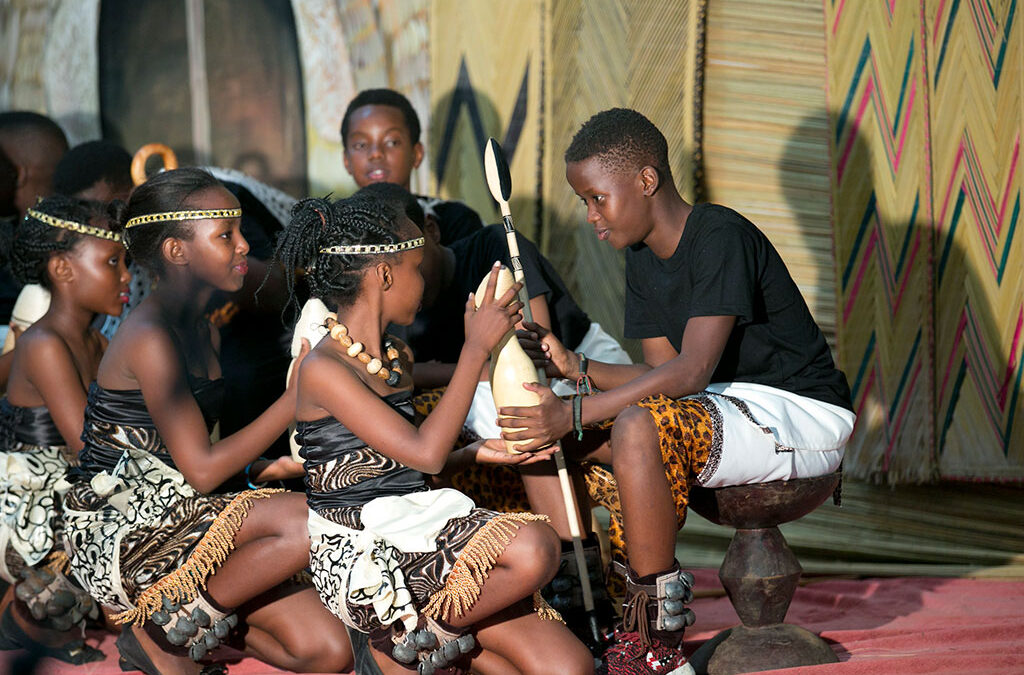Unpacking The Divergent Traditions Of Uganda And Rwanda
Uganda and Rwanda are two countries in East Africa with diverse and rich cultures shaped by multiple ethnic groups, languages, traditions, and customs. Both countries have unique social structures, traditional practices, and deep cultural roots that are reflected in their everyday lives, clothing, food, and other cultural practices.
Uganda: A Cultural Mosaic
Uganda’s culture is a blend of over 50 ethnic groups, each with its own distinct traditions, beliefs, and customs. The Bantu-speaking people are the largest ethnic group, predominantly found in the central, eastern, and southern regions of Uganda. The Nilotic ethnic groups, including the Iteso, Langi, Karamojong, Lugbara, and Acholi, mainly inhabit the northern part of the country.
Language
The official language of Uganda is English, and Kiswahili also holds an official status. Although Kiswahili has been discussed as a potential national language, this proposal has yet to be finalized. Luganda, the language of the Baganda people, is widely spoken and is the most common indigenous language. In rural areas, many people are more comfortable with Kiswahili and local languages compared to English.
Age Demographics
Uganda is one of the youngest nations globally, with over half of its population under the age of 16. This demographic distribution is evident across the country, where children are often more numerous than adults.
Religion
According to statistics, around 85.2% of Ugandans are Christians, while Muslims make up roughly 12% of the population. The remaining percentage includes other religions and belief systems.
Cuisine
The most commonly consumed food in Uganda is matoke, or bananas, which are a staple of most households. Uganda is among the leading exporters of matoke worldwide. Other widely consumed foods include posho (cornmeal), sweet potatoes, millet, cassava, groundnuts, green vegetables, and yams. Uganda also has various local drinks, such as malwa (especially popular among the Iteso people), kwete, mubisi, bushera, and akaliga. These drinks are mainly consumed in rural areas, particularly in the western and eastern regions.
Traditional Clothing
The traditional attire for women in Uganda is the gomesi or kitengi, while men wear kanzus. These outfits are prominently worn during cultural events and traditional functions, such as marriage ceremonies called “kwanjula.”
Transportation
Public transportation in Uganda includes public taxis (minivans marked with blue squares), private taxis, and motorcycle taxis known as “boda-bodas.” Boda-bodas are widely available across the country, although “Safe Bodas” (which can be identified by their orange helmets and gear) are recommended for safety. Public taxis operate from the New Taxi Park, Old Taxi Park, or along major roads in Kampala.
Rwanda: Rich Traditions and Community Spirit
Rwanda, Uganda’s neighbor, also boasts a rich cultural heritage with distinct traditional practices, dances, and crafts. The culture is deeply rooted in community, art, and a collective sense of purpose.
Amasunzu: The Traditional Hairstyle
Amasunzu is a traditional hairstyle in Rwanda that was once worn by both men and women. The unique look involves shaving part of the hair while braiding or styling the top. Historically, it symbolized power, nobility, and bravery. The hairstyle regained international attention in 2018 when actress Lupita Nyong’o wore it at the Oscars.
Intore Dance
The Intore dance, or “The Chosen Ones” dance, is a traditional Rwandan performance known for its energy and historical significance. It was performed exclusively for the royal court and involved military training, with dancers wearing grass wigs and holding spears. Today, Intore dance performances can be seen at cultural villages, museums, and some lodges and hotels across Rwanda. Notable places for these performances include the Gorilla Guardians Village in Musanze and the National Museum of Rwanda.
Artisanal Crafts
Weaving and basket-making remain integral parts of Rwandan culture. Traditionally, these items, known as “peace pots,” were used to store food and medicines and were often given as wedding gifts or to welcome visitors. Pottery, an ancient art form, is still practiced in many parts of the country, with traditional techniques preserved by the Batwa people.
Another notable craft in Rwanda is “imigongo,” a type of artwork made from cow dung. This craft, known for its geometric patterns in black, brown, and white, originated from Nyakarambi village and can be found in craft markets throughout the country.
Umuganda: Community Service
“Umuganda,” meaning “coming together in common purpose,” is a monthly tradition in Rwanda where citizens dedicate the last Saturday of each month to community service. Shops close, traffic ceases, and Rwandans contribute to activities such as cleaning streets, planting trees, and building houses for vulnerable people. This practice not only enhances social unity but also plays a significant role in keeping Rwanda clean, earning it recognition as one of the cleanest countries in Africa. Visitors are encouraged to participate, with a wide range of projects available to suit various interests.
Shared Cultural Elements
Both Uganda and Rwanda emphasize the importance of community, whether through shared events, cultural dances, or collective labor. They also maintain a strong connection to traditional crafts and clothing, which continue to be central to their identities.
In Uganda, cultural diversity and vibrant customs manifest in different languages, clothing, and foods, whereas in Rwanda, there is a focus on traditional art forms, dances, and a unique community spirit embodied by umuganda. Both nations offer a rich tapestry of culture and tradition that visitors are encouraged to explore and experience firsthand with Abim Gorilla Tours

